Iran Summons Sweden's Envoy Over Quran Burning
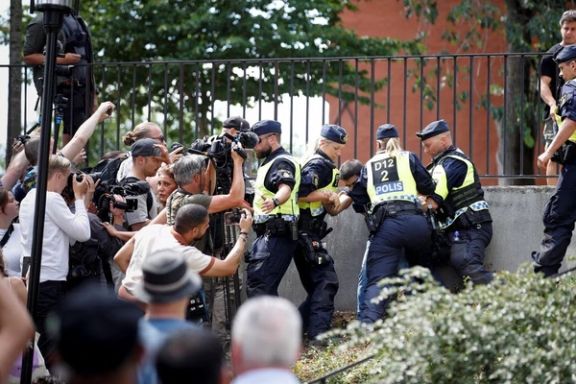
Iran’s foreign ministry has summoned Sweden’s charge d’affaires in Tehran over the burning of a copy of the Quran outside a mosque in Stockholm.

Iran’s foreign ministry has summoned Sweden’s charge d’affaires in Tehran over the burning of a copy of the Quran outside a mosque in Stockholm.
Condemning what Iran described as an insult to the most sacred Islamic sanctities, the ministry’s director-general for Western Europe summoned the diplomat on Thursday in the absence of Sweden's ambassador to Tehran.
“While Muslims are performing the Hajj, ... insulting their sanctities merely serves the path of spreading hatred and violence, exploiting the principle of freedom of expression,” read a statement by the ministry.
Two men publicly burned the Quran outside Stockholm's central mosque on Wednesday, an act approved by a Swedish court.
It was deliberately timed to coincide with the significant Muslim holiday, Eid al-Adha, further magnifying the incident's significance.
Some 200 onlookers witnessed one of the two protesters tearing up pages of a copy of the Quran and wiping his shoes with it before putting bacon in it and setting the book on fire, while the other spoke into a megaphone.
Several attendees shouted "God is Great" in Arabic to protest the burning, and one man was detained by police after he attempted to throw a rock.
Iran's Foreign Ministry Spokesperson Nasser Kanaani also condemned the Swedish government for permitting disrespect to the Muslim holy book on Thursday.
The act has led to protest rallies in several Muslim countries, with Iraqis holding a large demonstration outside the Swedish embassy in Baghdad.
Morocco also recalled its ambassador to Sweden late Wednesday to protest the desecration. Turkey’s foreign minister also criticized the move saying it is “unacceptable to allow anti-Islam protests in the name of freedom of expression”.
Burning religious texts is "disrespectful and hurtful", the deputy spokesperson for the US State Department told reporters in a daily briefing as well. "What might be legal is certainly not necessarily appropriate," Vedant Patel said.

Iran's foreign minister has reiterated Tehran’s willingness to restore diplomatic relations with Morocco as well as Egypt.
Hossein Amir-Abdollahian made the remarks during a ceremony with ambassadors, charges d'affaires, and heads of diplomatic missions from Muslim countries in Tehran on Thursday, on the occasion of Islamic holiday of Eid al-Adha (Feast of Sacrifice).
"We welcome expansion of relations and normalization of ties with other countries in the region and the Muslim world, including the Arab Republic of Egypt and the Muslim and brotherly country of Morocco," he said.
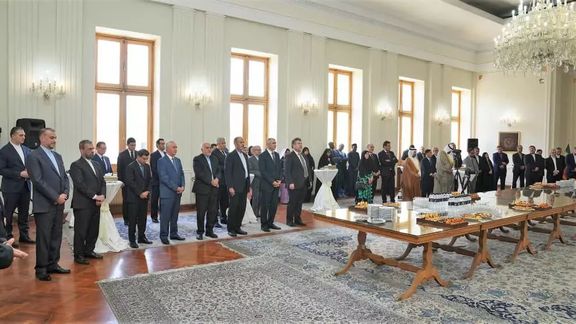
Tehran-Rabat relations are mostly non-existent, and diplomatic relations between the two nations have often been tarred by disputes.
Concerned of Iran’s attempts to spread its Shiite version of Islam in the country, which it deemed as a danger to its moderate Sunni religious identity, Morocco severed ties with Iran in 2009. They announced they were re-establishing relations in 2014. But in 2018, Morocco cut its diplomatic ties with Iran again, with the Moroccan Foreign Minister Nasser Bourita citing Iranian financial and logistical support to the secessionist Polisario Front through its Lebanese proxy Hezbollah and the Iranian embassy in Algeria.
Iran’s relations with Egypt, a close ally of Saudi Arabia and other Persian Gulf nations, have been fraught since the Shah fell in 1979. His subsequent refuge in Egypt, where he died and was buried in 1980, damaged relations.Qatar-affiliated media outlet Al-Arabi Al-Jadeed reported last June that Cairo and Tehran had agreed on “gradual expansion of Tehran-Cairo relations."
In May, Iranian lawmaker Fada-Hossein Maleki, a member of the parliament’s National Security and Foreign Policy committee, said that talks to bolster ties between Iran and Egypt are being held regularly in Iraq.
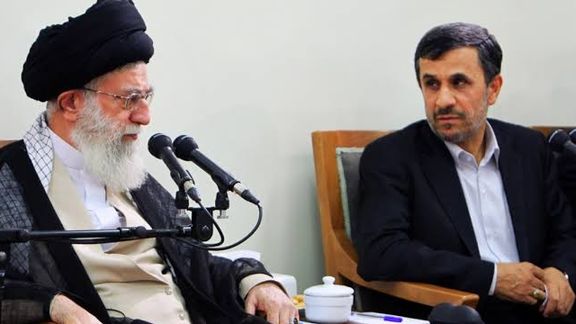
Hardliners dominating Iran’s ruling circles are eager to fend off suspicions that their own vigilantes were behind mass poisonings of schoolgirls in recent months.
A lawmaker claimed this week that “many of the hundreds” responsible for schoolgirl poisonings were affiliated with former President Mahmoud Ahmadinejad and were arrested on “direct orders” of Supreme Leader Ali Khamenei.
Using the term “Deviant Current” to describe the political affiliation of those responsible for the poisoning of thousands of schoolgirls across Iran, Morteza Mahmoudvand said hundreds have been arrested and being interrogated.
“We saw that the incidents of poisoning subsided after an order [by Khamenei] and parliament’s investigations,” Mahmoudvand told the Iranian Labour News Agency (ILNA).
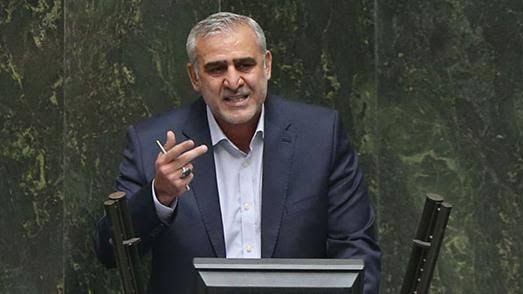
The poisonings started in the religious city of Qom in central Iran November 30, spread throughout the country, and continued until the end of April, sending hundreds of students to hospitals and at least one case of death was reported.
Many ordinary Iranians have been suspicious that hardliners, at the core of the regime, or religious extremists protected by the regime were behind the chemical attacks as a revenge against the active role of young girls in anti-regime protests. Many on social media called the attacks “state terrorism”.
In a statement on April 28, the intelligence ministry denied any indication that poisonous substances had caused the illness of students and said samples taken from the scene of the incidents examined by “the most reliable laboratories” in the country had not yielded any suspicious substances.
The ministry tried to minimize the serial attacks claiming students fell ill by stink bombs (stinkpots), pepper sprays and similar substances used by some students to disrupt classes.
“Officials have not confirmed Mahmoudvand’s allegations against the Ahmadinejad group yet, but it would be conceivable that the regime is aiming to kill two birds with one stone if they confirm these allegations,” a political analyst in Iran who requested anonymity told Iran International. “This will clear the regime itself of any responsibility and will also discredit the Ahmadinejad group in the eyes of some of its supporters.”
A dissident group of experts based overseas which has been investigating the poisonings has said that preliminary results of tests done on clothing of poisoned schoolgirls suggests the use of a nerve agent. Such agents, many say, could only be available to regime insiders.
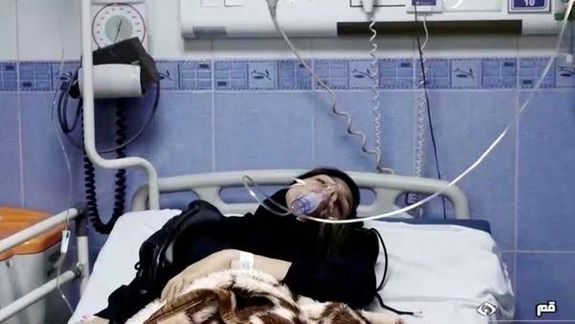
Some of the victims reported falling ill after an aroma, resembling tangerines, or a putrid stench filled the air in their classrooms. Hundreds had to be hospitalized with some staying in hospital for up to a week due to the severity of their symptoms including palpitation, headache, nausea, cough, sore throat, or temporary paralysis and weakness but most others were released within hours. In some cases, symptoms lasted for weeks.
Mahmoudvand also told ILNA that the “Deviant Current grouplet had infiltrated everywhere”, presumably meaning the government and intelligence organizations.
However, Ahmadinejad has maintained public silence for nearly a year and there has been no sign of any pro-Ahmadinejad group engaging in political activities.
Since a public standoff between Ahmadinejad, then president, and Supreme Leader Ali Khamenei in May 2011, officials of the Islamic Republic have used the term “Deviant Current” to describe Ahmadinejad and his inner circle including his vice president and confidante Esfandiar Rahim-Mashaei.
The conflict arose when Ahmadinejad fired Khamenei’s favored intelligence minister Heydar Moslehi who took his orders from the Leader.
Ahmadinejad even stayed home and refused to carry out his presidential duties for eleven days when Khamenei insisted that he reinstate Moslehi.
He eventually surrendered to Khamenei’s will, but the autocrat known for his vengefulness never forgave Ahmadinejad whose views he had said were the closest to his own, backing him before the 2009 presidential elections.
Khamenei’s devotees, accordingly, turned against Ahmadinejad who they had ardently supported throughout the years. Ahmadinejad was not allowed to run for presidency in 2017 and again in 2021, clearly on Khamenei’s orders.
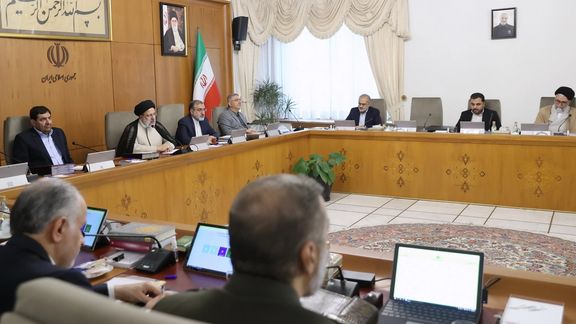
A commentary published in Tehran says President Ebrahim Raisi and his aides are determined to bar many current lawmakers from running in the March 2024 elections.
Forouzan Asef Nakhaei wrote in the commentary that a group of managers appointed through lobbying by influential lawmakers are responsible for the economic crisis and widespread poverty in Iran.
Earlier in June a decision by the interior ministry to limit interference by lawmakers in local governments led to conflict among powerful conservative factions. President Raisi’s government ostensibly wanted to create a healthier political environment, but critics saw it as an attempt to clip the wings of those lawmakers who are not among the president’s hardliner supporters.
Khabar Online called the development "a major conflict among hardliners." But other reports in the media indicate the opposite, that hardliners around Raisi are trying to isolate independent lawmakers and tens of neo-cons close to Speaker Mohammad Bagher Ghalibaf and fill the 290 seats with ultraconservative.
Many agree that lawmakers in various factions have exercised their influence on local governors and Interior Ministry officials to ensure their re-election and their preferred candidates in larger cities.
But what the presidential administration wants is to make sure that only the ultraconservative Paydari Party members win the seats. However, the fact is that most top officials Raisi has appointed are from the Paydari front or people presented by them.
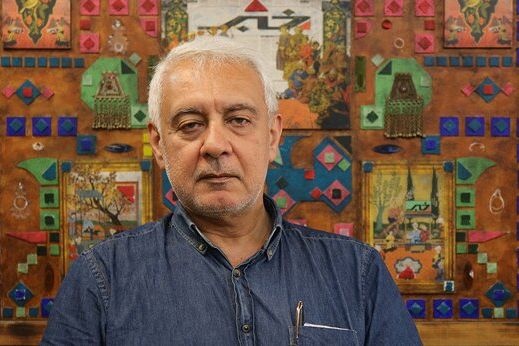
However, Paydari hardliners in the parliament accuse their independent and neo-con colleagues of introducing inefficient individuals to the government or of facilitating their rise to political power by getting elected to parliament.
Meanwhile, Nakhaei wrote that hardliners fear without major administrative reforms to give prominence to efficient managers, voters will blame Raisi for all the country's problems and this will reduce the likelihood of his re-election in 2025.
Speaking along the same lines, lawmaker Alborz Hosseini told Rouydad24 news website that the country needs agile managers who are ready to fight their way forward. He added that President Raisi has had a lot of time to sort out the economic chaos in Iran but has failed to do so.
He argued that it is too late for the kind of "trial and error" Raisi is experimenting with. One of Raisi’s weakest points is the appointments he makes, and this impacts the economy, which is clearly not in a good condition.
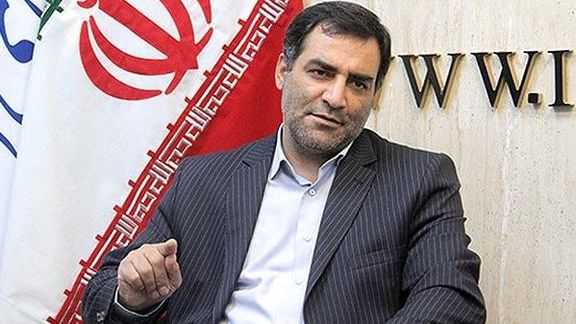
"Raisi had said at the beginning of his presidency that his choices of officials will go beyond factional boundaries, but in practice his choices were very limited. Now Raisi needs managers who can understand the country's critical situation."
But in addition to internal factors hurting the economy, Hosseini also pointed at the regime’s foreign policy. He underscored that the government should find a way to interact with the world to boost trade, oil sales and repatriation of oil money.
He added: "Raisi failed to stand by his promises and the people are utterly dissatisfied as they cannot make ends meet. It is not acceptable that prices rise two to three times every month. We have failed to do what we had promised in the areas of industry, housing, agriculture and so on and the people have a right to be angry about this."
Meanwhile, centrist website Entekhab likened Raisi's government to former President Mahmoud Ahmadinejad's administration, saying that both governments followed a "purification" project that was aimed at handing over the entire government to populist ultraconservative politicians and both of them appointed individuals to key posts that lacked the right qualification.

Israel says its intelligence agents in Iran succeeded in capturing the suspect behind an IRGC-planned attack on its nationals in Cyprus.
Mossad identified the suspect as Yousef Shahabazi Abbasalilo, who received “detailed instructions and weapons from senior Revolutionary Guard officials” to conduct the terror attack, thwarted a few days ago.
It also released a video showing the mastermind of the attack being interrogated. As part of the questioning, Abbasalilo confessed and revealed detailed plans.
Cypriot security forces dismantled the plot's infrastructure based on the information.
“We’ll get to every person that advances terrorism against Jews and Israelis all over the world, including on Iranian soil,” a senior Mossad official said.
Last year, Mossad captured a senior IRGC official on Iranian soil and interrogated him about weapons shipments to Iran's proxies.
The man introducing himself as Yadollah Khedmati, deputy commander of the Revolutionary Guards (IRGC) Logistics, said he regretted his involvement in shipping weapons to Iran’s proxy groups in Syria, Iraq, Lebanon, and Yemen and urged other IRGC officials to avoid engagement in such activities.
This is the third time evidence emerges of Israeli agents detaining an IRGC operative inside Iran and taping confessions. A short audio recording was published by Israeli media in May last year with a photo of a man introduced as Iranian national Mansour Rasouli, 52.
In the audio recording, Rasouli said he was sent to Turkey by the IRGC to establish an operational network to assassinate an Israeli diplomat in Istanbul, a Germany-based US general, and a journalist in France.
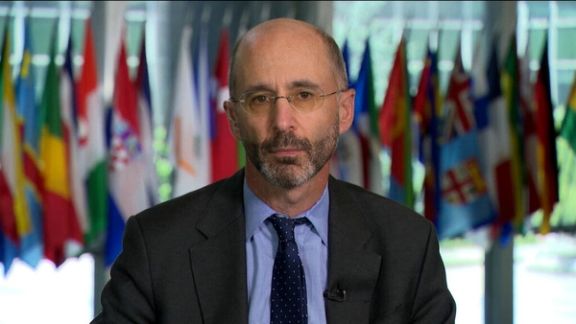
Iran International has learned that US special envoy for Iran Robert Malley is under investigation and his deputy has assumed his duties at the State Department.
After multiple inquiries, State Department Spokesperson Matt Miller said Thursday afternoon in a statement that "Rob Malley is on leave and Abram Paley is serving as acting Special Envoy for Iran and leading the Department’s work in this area."
Multiple sources told us that Malley is under investigation for yet unknown reasons and one source said that the Federal Bureau of Investigation (FBI) is also involved.
According to our sources, Malley has been absent for a considerable period prompting speculation about potential conduct-related issues, which could affect his security clearance.
Speaking to Iran International on the condition of anonymity, a source familiar with the case confirmed Mr. Malley's absence, saying, "He has completely vanished. No calls, no meetings."

Considering Mr. Malley's essential role in formulating US policy towards Iran, his abrupt and prolonged absence raised considerable questions. Iran International sought clarification earlier on Friday from the State Department regarding the nature of his leave and security clearance status.
In response, the State Department replied by email, "The Department of State, the Special Envoy for Iran, and his team remain deeply engaged on the formulation and implementation of US Iran Policy."
The Department's spokesperson reiterated the same during his daily briefing on Friday before spokesperson Miller confirmed that Malley is on leave.
The initial email did not clarify who is holding the position of ‘Special Envoy for Iran’. In further correspondence, we asked: "Can you please confirm whether Abram Paley is currently Acting Interim Special Envoy for Iran?" The state department's answer was short: "Hello, we decline to comment."
Journalist Barak Ravid tweeted after Iran International's exclusive report first appeared that Malley told him: "I have been informed that my security clearance is under review. I have not been provided any further information, but I expect the investigation to be resolved favorably and soon. In the meantime, I am on leave."
Another informed source confirmed to Iran International that Rob Malley did not participate in the early May negotiations with Iranians in Oman. Instead, the White House Middle East coordinator, Brett McGurk led the US delegation.
Axios had previously reported that McGurk journeyed to Muscat on May 8, following a visit to Saudi Arabia with National Security Advisor Jake Sullivan.

Malley's absence from the Oman negotiations implies that the White House and the US National Security Council have assumed control of the discussions with Iran, effectively sidelining the special envoy.
President Biden appointed Mr. Malley primarily to revive the JCPOA, abandoned by former President Donald Trump in 2018. During 2021 and 2022, Malley worked on convincing Iranian leaders to comply with the JCPOA's stipulated limitations on their nuclear program. However, the Iranian nuclear negotiators never agreed to meet with him or with any other US official.
During his tenure, the Biden administration practically stopped enforcing US oil sanctions intended to persuade Tehran to scale back its uranium enrichment program.
Iran was barely exporting 250,000 barrels of oil per day during 2019 and first half of 2020, but shipments began to increase in the latter part of that year as Joe Biden signaled his readiness to negotiate for the revival of the JCPOA. Industry sources report that Iran’s daily oil exports have now reached 1.5 million barrels.
According to Iran International sources, Malley had been deeply involved in trying to free dual national prisoners from Iran before his unexpected leave. The sources suggest that he intended to step down from his position following their release, hoping to end his tenure on a high note.
Earlier this year, Iran International released an exclusive report disclosing Mr. Malley's dealings with Iran's UN ambassador, Amir Saeed Iravani, a former senior official in Iran’s Supreme National Security Council.
These discussions are thought to be the first direct contact between the US and Iranian officials since Washington’s withdrawal from the JCPOA in 2018. In response to our January inquiries about these meetings, the State Department stated, "We have the means to deliver specific and firm messages to Iran when it is in America's interest to do so." The Financial Times confirmed our initial report in June.
UPDATED AT 20:15 GMT, June 29